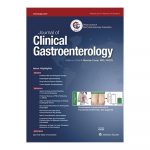Spectrum of Drug-induced Chronic Diarrhea
 The evaluation of a patient with chronic diarrhea can be quite frustrating, as it is expensive and involves multiple diagnostic studies. Moreover, identification of a drug as a cause of chronic diarrhea is a challenge in patients taking multiple medications. The disease may either be associated with intestinal mucosal changes, mimicking diseases such as celiac disease, or purely functional, with no histopathologic change.
The evaluation of a patient with chronic diarrhea can be quite frustrating, as it is expensive and involves multiple diagnostic studies. Moreover, identification of a drug as a cause of chronic diarrhea is a challenge in patients taking multiple medications. The disease may either be associated with intestinal mucosal changes, mimicking diseases such as celiac disease, or purely functional, with no histopathologic change.
Drug-induced diarrhea may or may not be associated with malabsorption of nutrients, and a clinical improvement may occur within days of discontinuation of the drug, or may take longer when associated with mucosal injury. Diarrhea in diabetics, often attributed to poor management and lack of control, may be due to oral hypoglycaemic agents.
Chemotherapy can result in diffuse or segmental colitis, whereas olmesartan and a few other medications infrequently induce a disease that mimics celiac disease, but is not associated with gluten intolerance. In short, increased awareness of a drug, as a cause for diarrhea and a clear understanding of the clinical manifestations will help clinicians to solve this challenging problem.
This article aims to review drug-induced diarrhea to (a) understand known pathophysiological mechanisms; (b) assess the risk associated with frequently prescribed medications, and discuss the pathogenesis; and.
Philip NA, Ahmed N, Pitchumoni CS.
Journal of Clinical Gastroenterology, 51 (2): 111−117, FEB 2017
doi: 10.1097/MCG.752.
